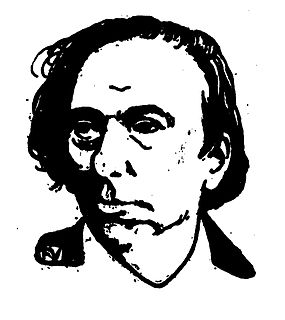A Quote by Thomas Browne
They do most by Books, who could do much without them, and he that chiefly owes himself unto himself, is the substantial Man.
Related Quotes
Man is a fallen star till he is right with heaven: he is out of order with himself and all around him till he occupies his true place in relation to God. When he serves God, he has reached that point where he doth serve himself best, and enjoys himself most. It is man's honour, it is man's joy, it is man's heaven, to live unto God.
The day has gone by when a monk can tear a Hypatia from the pursuit of philosophy and throw her to a rabble of insane monastics to be dragged to a violent death.... Man has made himself a law unto himself, publishing it in his pretended "heavenly" revelations, dogmas, and statutes. Woman is not constructing a law unto herself, and she is putting it forth, not on a pretendedly supernatural, but on a natural basis.
As Lucretius says: 'Thus ever from himself doth each man flee.' But what does he gain if he does not escape from himself? He ever follows himself and weighs upon himself as his own most burdensome companion. And so we ought to understand that what we struggle with is the fault, not of the places, but of ourselves
One receives as reward for much ennui, despondency, boredom -such as a solitude without friends, books, duties, passions must bring with it -those quarter-hours of profoundest contemplation within oneself and nature. He who completely entrenches himself against boredom also entrenches himself against himself: he will never get to drink the strongest refreshing draught from his own innermost fountain.





































